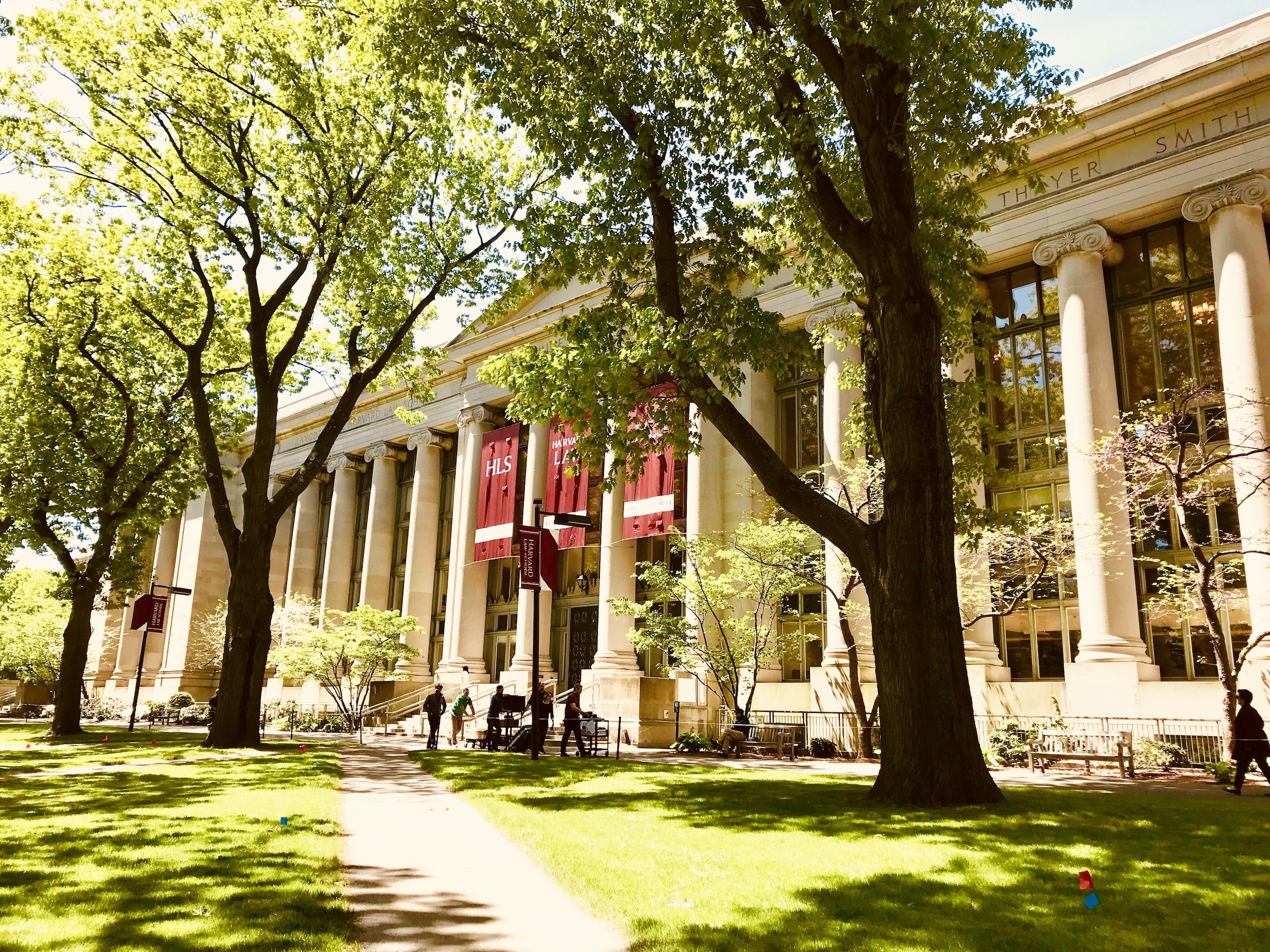One thing that seems to be on the rise in our little corner of the academic world is an interest in joint degree programs, be it combining an MBA with a policy program, a more niche degree (such as a masters in something very quantitative), or the tried-and-true JD-MBA, there has been a push to fuse a business education with “something else.”
This is especially true at Harvard, where HBS is always a powerful draw for our clients, but also boasts Harvard Law and the Kennedy School, creating truly dynamic and elite pathways for students seeking a joint-degree program.
Given that, today we want to dispense some advice on how to tackle a joint degree essay, specifically focused on the question that HBS asks, which is:
How do you expect the joint degree experience to benefit you on both a professional and a personal level? (400 words)
To understand what they are trying to draw out of this, we have to start by analyzing what HBS wants to know as they consider your pursuits. It is helpful to break this down by comparing it to other types of questions that are like this. For instance, Wharton was asking, “What do you hope to gain both personally and professionally from the Wharton MBA?” several years ago (they dropped the “personally” in recent years). With Wharton, the best approach was to hit on the “What,” “Why,” and “Where” of your career goals – what you wanted to do (short-term and long-term), what motivated you (the “personal” appeal of those professional goals), and where you wanted to go to b-school to best achieve those ambitions (why Wharton). We were able to determine that by looking at the questions they had long asked, understanding key elements of the school, and then seeing what their second essay question offered by way of room to cover other key elements.
But what about a pursuit of HBS-HKS or HBS-HLS? It takes a different sort of analysis. Namely:
First and foremost, you have to make a key “responsive” decision to your main HBS essay. Some people will write their entire Harvard open-ended essay about the “why” of their career pursuits – that underlying motivation that drives them to do X for the rest of their lives. If that is the case, you clearly would not repeat yourself in this more “nuts and bolts” essay. This is true, even with the inclusion of the word “personal” in the question prompt. If you have already written 600-900 words on what drives you on a personal level, then you simply have to draw from that and refer back to it here in this context, rather than repeat yourself.
Obviously, the flipside is also true: if you have not written about the underlying “why” of your career goals as your topic of choice for the HBS essay, then you need to do so here. That must become a key pillar of this joint degree essay.
What about your goals themselves? Well, we know that HBS hasn’t been asking about them for years, other than a short answer field on the application itself. So, given that, should you go into great detail here on this joint degree essay? I would say no. Again, this is about looking to the school itself to find out what they want. When Wharton says they want 500 words on what you hope to get out of their program both professional and personally, we can assume they want a nice, healthy paragraph describing your goals both short term and long. That is because they have always wanted to know and they guard their employment stats carefully. With HBS though, they have never been super interested in a lot of detail around your goals and they seem fairly indifferent to your short-term goals as well. So my advice would be to briefly mention your overarching career goal merely as a framing device for the type of experience you want now. Which leads us to…
The one building block that everyone should be using as foundational is talking about the nature of the joint degree program and what kind of experience it will provide to you at this crucial time in your life. Make sure to lift your interest beyond the mundane (courses, the degree combo itself) to include the transformational (the types of people you will meet, the ideas you will be exposed to – things that hit on that “personal level” idea). But most of all, sell the idea that you really desire this combination of programs.
Okay, with this analysis, we basically have two paths you will go down:
Path One – Writing About the “Why” of Your Goals
If you did not write about the motivation undergirding your career goals in the main HBS essay, you would do so here and your essay would include:
· What your goals are, briefly, and mainly focused on the long-term, high-level goals
· A detailed explanation of what drives those goals and why that personal motivation leads to this dual degree program and to your goals beyond
· Breaking down why this combo of degrees brings that all together
Path Two – Not Writing About the “Why” of Your Goals
If you already hit on all the rich motivation material in your “main” essay, then you are not going to repeat yourself here, so your path goes:
· What your goals are, briefly, and mainly focused on the long-term, high-level goals
· Breaking down why this combo of degrees is right for that pursuit
· Then talking about why this combo of degrees is right on a level that goes beyond that pursuit, meaning on a personal level, complete with an example from your life
This basically means that if you already wrote about the fuel for your life, then the best use of this space (and the best possible outcome across the board) is that you have room left to specifically articulate why this joint degree program would fulfill you in a way that goes beyond professional, and then share an example of how you know that – either an interdisciplinary experience that pushed you, or a time you were exposed to completely new ideas that changed your worldview, or perhaps a work environment where the fusion of two worlds created something much greater than the sum of the individual parts.
If you are looking for help on the HBS joint degree question – or any other essay question – email us at dhoff@amerasiaconsulting.com .










